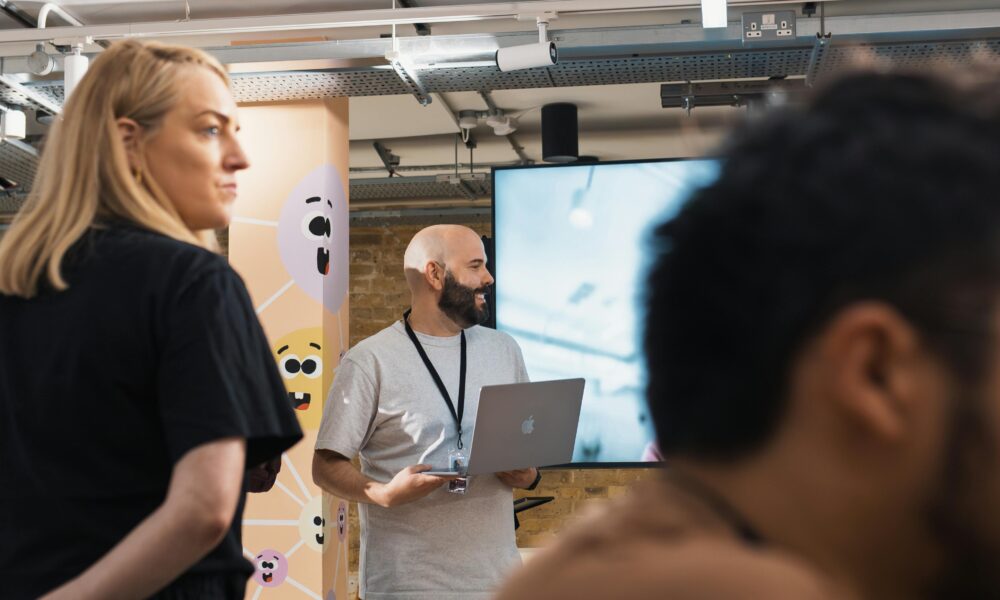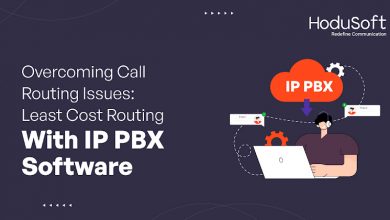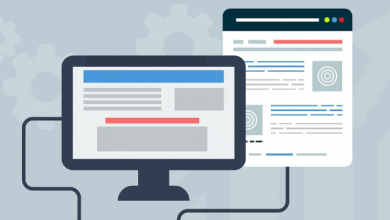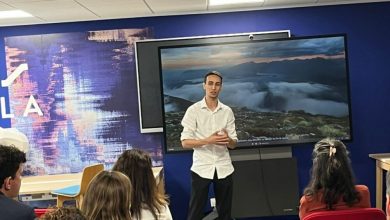How Should Businesses Approach Employee Development?

What does it take to foster meaningful growth and learning in today’s workforce? To explore this, we gathered insights from an Education & Professional Development Specialist Consultant, the CEO of Conscious Leadership Partners, and other industry leaders. From strategies like personalized development plans to the power of real-world learning experiences, these nineteen expert contributions reveal how businesses can create impactful employee development programs that truly make a difference.
- Focus on Personalized Employee Development
- Design Learning Labs and Culture Journeys
- Foster a Culture of Growth
- Implement SEO Mastery Ladder Program
- Encourage Micro-Projects for Skill Development
- Introduce Structured Learning Sprint Model
- Provide Access to Premium Courses
- Prioritize Continuous Learning and Growth
- Introduce Self-Driven Development Approach
- Recognize Unique Needs and Learning Styles
- Utilize Individualized Development Plans
- Identify Strengths with Skill Pathways
- Dedicate Work Hours to Learning
- Involve Employees in Goal-Setting Process
- Recommend Mentorship for Employee Development
- Conduct Soft Skill Development Workshops
- Enhance Familiarity with AI Technologies
- Implement Tuition Reimbursement Program
- Teach by Doing with Real-World Experience
Focus on Personalized Employee Development
We focus on personalized employee development with a strong emphasis on culturally responsive pedagogy, restorative practices, and DEI (Diversity, Equity, and Inclusion) initiatives. Our approach is rooted in ongoing continuous learning that is tailored to meet the unique needs of each participant.
One core program we offer is our Restorative Justice Circle training. This year-long program is structured around monthly micro-sessions, each building on the previous one to deepen participants’ understanding of restorative practices and their implementation in educational and organizational settings. The goal is to create a space where participants can engage in active reflection, accountability, and community-building, empowering them to lead in a way that fosters belonging and positive change.
The program includes both in-person and virtual components, ensuring accessibility for diverse learning styles and environments. The training emphasizes the importance of creating safe spaces for dialog and healing, integrating these principles into everyday practice to address conflict and cultivate a restorative culture.
An example of its impact can be seen in the results from educators who have undergone the training. Several schools that implemented restorative practices reported significant improvements in student-teacher relationships, reductions in disciplinary actions, and an overall increase in school-wide engagement. Teachers and school leaders also noted a stronger sense of community and collaboration among staff, which translated into a more inclusive and supportive learning environment for students.
Our programs also focus on scalability—for example, we offer train-the-trainer models that enable schools to embed these practices into their daily routines long after the initial training. This approach empowers educators to continually refine their own practice and mentor others, ensuring that learning does not stop after a single workshop but instead becomes part of a continuous, evolving journey.
By aligning our development programs with the latest research in education and restorative practices, we ensure that they are not only relevant but also adaptable to meet the changing needs of diverse communities. Our participants consistently report a greater sense of confidence in their roles, enhanced leadership skills, and a renewed commitment to supporting the growth and well-being of their students and colleagues.
Marla Hunter, Education & Professional Development Specialist Consultant, Live. Love. Teach! LLC
Design Learning Labs and Culture Journeys
Our firm designs learning labs and culture journeys to help organizations intentionally build a positive work culture by reimagining talent development. Our “Unlearning Advantage” model identifies unconscious beliefs and behaviors that may hinder effective leadership. We guide individuals through the “unlearning” process in areas like psychological safety and growth mindset. For instance, if time management is an issue, we explore how their relationship with time is tied into their identity. If busyness is linked to self-worth, a new narrative is needed before strategies like time blocking or delegating can work. This approach transforms organizations by addressing the identity-based resistance to behavior change.
Carolina Caro, CEO, Conscious Leadership Partners
Foster a Culture of Growth
We focus on fostering a culture of growth through our “Learn and Lead” program. This initiative encourages team members to pursue continuous education while aligning their personal growth with company objectives. Each employee has access to learning stipends for courses, certifications, or workshops that help sharpen their skills, whether in technology, customer service, or leadership.
One example of its impact came from our customer success team. Through targeted training in advanced CRM strategies, a team member not only improved client retention rates by 25% but also became a mentor for others in her department. This ripple effect of shared knowledge elevated our entire team’s proficiency and morale.
By prioritizing learning, we’re not just investing in our team’s potential—we’re also building a company culture where innovation thrives and employees feel empowered to lead.
Rick Elmore, CEO, Simply Noted
Implement SEO Mastery Ladder Program
Implementing our “SEO Mastery Ladder” program revolutionized how our team grows and adapts to search marketing evolution.
Our specialists start with fundamental SEO skills, then progress through increasingly advanced certifications while mentoring newer team members. This dual-role approach deepens their expertise while developing leadership abilities. One standout success story involves a junior analyst who now leads our enterprise SEO division after mastering each certification level.
Monthly skill workshops pair veteran team members with newcomers to tackle real client challenges. During a recent session, a junior specialist spotted a mobile optimization opportunity our senior team hadn’t considered, leading to a 25% improvement in client mobile rankings.
The program’s strength lies in its practical application. Each team member works on progressively complex client projects matching their skill level. This hands-on experience, combined with structured learning paths, creates confident SEO professionals who drive measurable results for our clients while advancing their careers.
Marc Hardgrove, CEO, The Hoth
Encourage Micro-Projects for Skill Development
“Learn and Lead” Micro-Projects: Employees are encouraged to lead short-term projects outside their primary responsibilities. These micro-projects allow them to explore new skills and showcase untapped talents. Leaders provide guidance, but employees take full ownership of these experimental initiatives. It’s a low-pressure way to foster innovation while boosting individual confidence. The result? A dynamic, skill-diverse team ready to tackle complex challenges.
An SEO analyst led a micro-project to automate repetitive keyword research tasks. Their innovation reduced manual workloads across the team, saving hours weekly per member. The experience boosted their confidence and earned them a promotion within six months. This project showed that small opportunities often lead to massive organizational impact. It’s a testament to how “Learn and Lead” can uncover groundbreaking ideas.
Jason Hennessey, CEO, Hennessey Digital
Introduce Structured Learning Sprint Model
We introduced a structured “Learning Sprint” model where employees engage in monthly skill-building workshops, peer-led study groups, and access to curated online courses. This program is tied directly to our growth goals—each quarter, team members select a skill they want to develop, like mastering a new coding framework or improving communication techniques. After implementing these sprints, we saw a 20% reduction in project turnaround times as teams became more adept at adapting to emerging technologies and methodologies.
Over time, this continuous learning cycle fostered a culture of curiosity and adaptability, directly contributing to our consistent triple-digit year-over-year growth. By investing in development opportunities that are both practical and aligned with business objectives, we’ve empowered employees to drive innovation and sustain our company’s upward trajectory.
Harsha Abegunasekara, CEO, Metana
Provide Access to Premium Courses
I’ve found that giving our team full access to premium courses on our own platform has been incredibly effective for growth. Just last month, one of our customer support reps used our Python programming courses to automate their daily reports, saving hours of manual work and inspiring others to learn to code too. We’ve made it a policy that team members can spend 4 hours per week during work time on any course they choose, which has led to better skills, higher engagement, and some amazing cross-department collaborations.
Rakesh Kalra, Founder and CEO, UrbanPro
Prioritize Continuous Learning and Growth
We prioritize employee development through our Continuous Learning and Growth Program. This program combines tailored training plans, access to industry certifications, and regular mentorship opportunities. Employees are encouraged to pursue certifications like CompTIA, Microsoft, and cybersecurity credentials, which we fully support through funding and dedicated learning time. For example, one of our technicians recently completed an advanced Microsoft Azure certification through this program. This not only boosted their career growth but also allowed us to enhance our cloud service offerings for clients. By investing in our team’s skills, we foster a culture of growth that benefits both our employees and the businesses we serve.
Mark London, President/CEO, Verity IT
Introduce Self-Driven Development Approach
In our organization, we have introduced a self-driven development approach where employees design their own quarterly learning roadmaps. Each team member identifies skills or knowledge areas they want to explore and aligns them with organizational goals. They then set clear milestones and work on these through curated resources, hands-on projects, or collaborative initiatives.
One example is a product specialist who wanted to deepen their understanding of data analytics. They proposed a roadmap that included shadowing the data team, completing specific case studies, and applying insights to improve client solutions. By the end of the quarter, their efforts led to a new reporting framework that significantly improved decision-making processes.
This method empowers employees to take ownership of their growth. It encourages creativity, builds accountability, and ensures that learning directly ties into meaningful contributions to the organization.
Lucas Botzen, Talent Acquisition Specialist & CEO, Rivermate
Recognize Unique Needs and Learning Styles
We take a personalized approach, recognizing everyone has unique needs and learning styles. Our team members engage in a mix of self-paced learning and interactive group training, allowing them to build skills that benefit their personal growth and our organization. A key program we focus on is continuous learning through feedback loops—we ensure employees have regular opportunities to receive constructive feedback, implement changes, and reflect on their progress.
One program that stands out is our Leadership Development Track, designed for employees ready to step into leadership roles. This program combines live webinars, role-playing exercises, and peer-to-peer mentoring to teach essential leadership skills such as communication, decision-making, and conflict resolution. For example, one of our team members went through the track and successfully transitioned into a team lead role, improving team performance within the first six months.
By fostering a culture where learning is ongoing, we help our employees stay agile, motivated, and ready for the challenges ahead. This drives individual growth and ensures we continue to lead the way in soft skills development.
Bradford Glaser, President & CEO, HRDQ
Utilize Individualized Development Plans
Our approach to this at our company is through Individualized Development Plans (IDPs), which has been a key mechanism for encouraging ongoing growth and development. Attention to personal aspirations allows development efforts to be aligned with organizational goals, allowing employees to see the value in everything they are doing. This starts with a discussion among employees and their managers in order to pinpoint exact, quantifiable objectives that tackle development needs, skills training, and career advancement. These plans are highly individualized, understanding that each employee has different strengths, challenges, and career paths.
At the recent quarterly meeting, for example, a member of our marketing team stated their passion for learning more about data analytics, which is essential in today’s marketing landscape. To help achieve this goal through their IDP, we enrolled them in a six-month full-stack data analytics training program. We took it a step further and paired them up with one of our analytics department veterans so they could learn hands-on and apply their newfound knowledge in real time. We gave them the responsibility to run a data-driven energetic marketing campaign to further reinforce their growth. And the results were amazing. In addition to this employee learning important technical skills, they were able to apply their knowledge to drive a huge impact on the campaign performance and a 25% increase in ROI.
Such is an example of how IDPs can play a pivotal role in fostering personal excellence and engendering organizational performance. We feel that by aligning the development plans with the job role that they are in or aspiring to be in within the next few years, we not only encourage a culture of learning for the role they are in but also prepare our team members with the necessary skill sets needed to excel in the respective areas and invest in their career paths while supporting the organization’s needs.
Darryl Stevens, CEO, Digitech Web Design
Identify Strengths with Skill Pathways
In my business, we prioritize employee development through a personalized growth program we call “Skill Pathways.” It’s designed to identify each team member’s strengths, passions, and career goals and then tailor learning opportunities around those.
For example, we use a mix of mentorship, skill-sharing sessions, and access to specialized online courses to create a continuous cycle of learning. What makes it unique is the focus on practical application—every skill learned is tied to a real project or initiative, ensuring immediate relevance and impact.
One of the most inspiring outcomes came from a junior team member who used Skill Pathways to explore leadership skills. Through mentorship and leading small-scale projects, they not only grew their confidence but also successfully managed a high-impact client initiative. Their development didn’t just boost their career—it elevated the entire team’s performance. This approach proves that when growth is personal and purposeful, it benefits both individuals and the organization as a whole.
Adam Zagha, Founder, Numa Recovery Centers
Dedicate Work Hours to Learning
We dedicate 1 out of 8 work hours to learning and development (L&D). Every employee gets an hour each day to focus on their growth—no approvals, no mandatory check-ins, and no need to explain what they learned. It’s their time to focus on topics related to their role or field.
This gives people the freedom to steer their development in directions that matter for their work. Some dive into technical skills, others explore leadership or new trends in their field. It’s about trust—letting people choose how to grow without micromanagement.
Here’s why it works:
- It’s flexible. Employees decide what to learn and when. It’s not an extra task—it’s part of the workday.
- It removes stress. By carving out time for learning, we take away the pressure of figuring out how to grow while managing everything else.
- It builds trust. There’s no expectation to justify or prove what’s been learned. Growth is focused and self-driven, but supported by the company.
This isn’t about shifting culture—curiosity is already one of our core values. Instead, this approach makes job-related learning a natural part of how we work. It helps people deepen their expertise and stay ahead in their field, while building a stronger team overall.
Sigita Šaltė, Employee Experience Manager, HR Consultant, Evolvery
Involve Employees in Goal-Setting Process
We always involve our employees in the long-term goal-setting process since we want them to set their personal goals that complement the company’s goals. So, in a way, they’re in charge of the direction they want to take at our company. Based on that, we create a personal roadmap for all our team members to make sure they progress consistently and have a clear development plan to rely on to avoid stagnation. For instance, some of our team members have expressed the desire to move into higher or managerial positions down the line. We heard them and developed a leadership program.
Again, we first build a personal roadmap to outline the employee’s journey to the desired position. The roadmap itself includes a few key components: collaboration, additional learning, and regular review sessions. First, we prefer all our employees to collaborate with each other and keep open communication going, even if they are in different teams. Sharing perspectives, especially those drastically different, is key to extending your knowledge. Second, our employees are encouraged to take extra educational courses and we always support them as long as those courses are related to their responsibilities or offer new skills that would improve their qualifications.
Third, getting feedback regularly is the only way you can move forward. That’s why we have quarterly review sessions, where we offer 360 feedback to our employees and allow them to share their achievements over this period. Based on that, we adjust the roadmap if needed, and our employees gain a better understanding of what they’re doing right and what needs improvement. With this system, we consistently see our employees moving up. For example, some of our team members who started from junior positions are now team leads.
Dima Eremin, CEO, BluedotHQ
Recommend Mentorship for Employee Development
One of the most impactful approaches I recommend for employee development is mentorship. We pair new hires with seasoned team members who act as guides and coaches, providing tailored support as they onboard and get up to speed. Through regular check-ins and knowledge sharing, mentors pass on institutional knowledge while mentees gain skills and confidence. We’ve seen this lead to faster ramp-up times, higher engagement, and more well-rounded employees.
For example, when we brought on a junior sales rep last year, we matched her with a 10-year veteran. They met weekly to discuss challenges, strategies, and goals. Within her first 6 months, the mentee closed two major deals thanks to tactics she learned from her mentor. The relationship built her capabilities and drove results beyond what training alone could provide. Mentorship ignites continuous growth.
Gauri Manglik, CEO and Co-Founder, Instrumentl
Conduct Soft Skill Development Workshops
We prioritize holistic employee development, and Soft Skill Development Workshops have been a transformative tool for our team. These workshops are tailored to improve interpersonal abilities like communication, teamwork, and emotional intelligence, critical in a remote-first AI SaaS environment. For instance, we recently held a workshop focusing on conflict resolution and cross-cultural collaboration, given the global nature of our workforce.
The impact has been remarkable. One team member, who initially struggled with navigating feedback loops during client interactions, reported a 30% improvement in their satisfaction scores post-training. Moreover, these workshops have sparked a culture of continuous learning. Employees now proactively seek out additional resources, engage in peer-to-peer mentoring, and are more comfortable contributing to cross-departmental projects.
My advice for implementing such workshops is to make them interactive and grounded in real-world scenarios relevant to your industry. Encouraging role-playing exercises or case studies ensures the lessons stick and drive meaningful growth.
Dhanvin Sriram, Founder, Luppa AI
Enhance Familiarity with AI Technologies
We decided to take a proactive approach towards employee building by taking into account the rise in use of popular large language models (LLMs) like OpenAI. Realizing the transformative possibilities of AI, we made sure that all employees had access to targeted training courses and similar offerings to enhance their familiarity with AI technologies.
It enabled our teams to grasp the basics of AI, examine its usage, and discover how they can tap into it for creating better solutions. In fact, team members in our product development teams leveraged their newfound AI skills to streamline clinical trial processes to be much more efficient to better serve patients and researchers alike.
This shift has improved the attitude toward learning and contributed to a strong practice of continuous improvement. Our employees now have the tools to stay ahead of technological advancements, guaranteeing that we produce the right solutions that fulfill customer needs and expectations. This approach of continuous growth and learning has fueled personal development, employee engagement, and business transformation.
Siddharth Parakh, Sr Engineering Manager, Medable Inc.
Implement Tuition Reimbursement Program
We understand how critical it is for our staff members to pursue ongoing education and career advancement. The business has put in place a strong tuition reimbursement program to actively encourage and support this. Through this program, we offer our employees financial aid, allowing them to take a variety of courses related to their jobs and earn certifications accepted by the industry.
This tuition reimbursement program is a calculated investment in our employees’ development and progress. The organization is giving its staff the specialized knowledge and abilities they need to succeed in their positions and advance the company by enabling them to expand their knowledge in important fields like project management, e-commerce analytics, and digital marketing.
This tuition reimbursement program’s effects go beyond the specific employees who benefit from it. The organization’s overall skill set and capabilities are strengthened when team members improve their abilities through ongoing education. Employees and the business as a whole gain from this culture of expansion, creativity, and constant improvement.
In the end, our tuition reimbursement program shows our dedication to our employees’ long-term success and professional growth. The business is setting itself and its team up for long-term success and growth in the competitive world of e-commerce by fostering a learning-oriented workplace and giving staff members the tools they need to increase their knowledge and proficiency.
Michelle Nguyen, Product Owner & Marketing Manager, UpPromote
Teach by Doing with Real-World Experience
I keep it simple. I teach by doing. When I bring someone onto the team, it’s not just about them knowing the basics, it’s about learning on the job and growing with real-world experience. I pair new team members with seasoned electricians so they can see how we troubleshoot, problem-solve, and get things done right.
For example, I had a junior electrician shadow me on a big commercial job. By the end, they were confidently handling tasks I wouldn’t have handed over on day one—like wiring panels and testing circuits. It’s all about building skills while working, not just talking theory. This approach keeps the team sharp and always learning, and it’s how I make sure everyone grows with the business.
Ryan Gregor, Owner & Head Electrician, RCG Electrical
Related Articles
- How Individual Development Plans Empower Employee Success
- Why Organisations Should Have Employee Development Software: The
- The Role Of LMS In Continuous Employee Development





